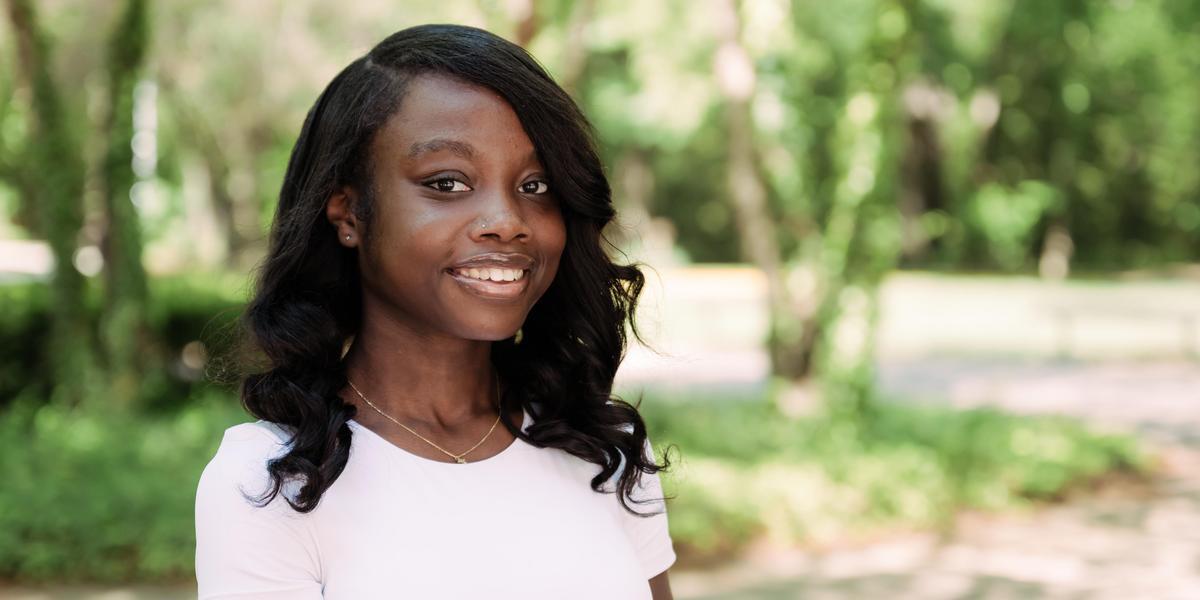
Hannah Slowe has always loved helping people. She thought studying law would enable her to turn her passion into a career. Although she had a detailed plan for reaching her goal, she first had to convince her Guyanese parents it was a good idea.
“... Our cultures are pretty strict in certain things, especially when it comes to women, and one of the hardest things I had to do was just learn how to speak up. ... Even when I was letting my family know I want to be a lawyer. ... At times it was, ‘Oh, you're a woman. Maybe look for a softer type of job, something more feminine or whatnot.’ But no, we should be able to do what we want, be who we want to be no matter what our gender is.”
Slowe’s determination paid off. Last fall, she enrolled in AACC’s paralegal program, one of only four such college programs in Maryland certified by the American Bar Association.
The transition hasn’t always been easy. As a first-generation student, she has had to navigate through many new experiences on her own. She said she struggled with her mental health at first. However, she began to build a strong support network at the college. She started a peer review group for her first paralegal course. She also got involved in the Leadership Challenge Program, working with new friends to improve the cleanliness and safety of the college’s walking trails.
Balancing school and extracurricular activities, along with volunteer and part-time work, can seem like a lot at times. But Slowe's background has made her resilient in the face of challenges.
“I feel like being a first-generation college student, it definitely encouraged me to just always work hard,” she said. “It's always been in me. Also, as a daughter of an immigrant ... working hard is definitely my thing.”
Slowe hopes to transfer to a four-year school and then attend law school. But before she leaves AACC, she hopes to create a mental health club or some other support group for future students.
“We need human connections. We need to be able to make friends. ... So, I just really want to create a space for students to be able to feel comfortable with and let them know that they're wanted here, especially students in situations like me who are navigating this college situation on their own.”